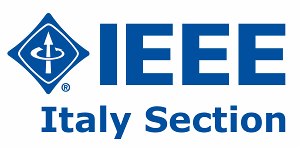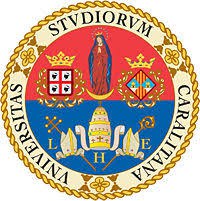Site News
The 20th International Conference on Computational Science and Its Applications
The 20th International Conference on Computational Science and its Applications
For news and updates, follow ICCSA on Facebook.
If you're participating at the conference, don't forget to join ICCSA Riot for the meetups (once in Riot, make sure to join in the rooms "ICCSA 2020 Official Announcements" and "ICCSA 2020 Lobby").
Certificates of attendance now available
11th July 2020
Dear ICCSA participants,
The certificates of attendance are now available in the the registration and submission platform.
You will be able to download your certificate, together with the invoice, on your page in the registration platform.
For any changes or corrections, please send you requests:
- for the certificate of attendance, to Chiara Garau (cgarau@unica.it)
- for the invoice, to Beniamino Murgante (beniamino.murgante@unibas.it)
Soon, we will put online also the certificates for workshop and session chairs.
Certificates of attendance coming soon...
6th July 2020
Dear ICCSA participants,
The certificates of attendance will be generated in bulk from the data you’ve inserted on the registration and submission platform.
You will find your certificate on your page in the registration platform when it is ready.
To put the correct information on the certificates, please make sure that your data (names, affiliation, etc.) is correct on the platform before 8th July.
Shortly thereafter, we will produce the certificates and inform you on ICCSA website that they are ready.
We will follow the same procedure for workshop chairs, who will thus find two certificates on their page in the registration platform.
Thank you.
Thank you!
Sunday, 5th July 2020
Dear colleagues, friends, ICCSA 2020 participants,
Thank you for participating at ICCSA 2020. We hope you all had a productive and pleasant conference experience.
Our Riot platform will remain open to let you access the presentations, and for whatever use you want to make of it.
In the next days we will process requests, certificates, and other pending issues, including wrapping up the proceedings.
In case you missed the key events of the conference, we remind you that they are all available on YouTube:
- Opening Ceremony
https://www.youtube.com/watch?v=rbtNqoWC3Zo - Opening Keynote lecture
Yaneer Bar-Yam
"Complexity: Modelling and Risk Management for Covid"
https://youtu.be/3jDhM_sjxrw - Keynote lecture
Vincenzo Piuri
"Ambient intelligence for smart living"
https://youtu.be/ZJ24ETc3ZCM - Keynote lecture
Cecilia Ceccarelli
"Astrochemistry: a new challenge for computational chemistry"
https://youtu.be/eDUZeSDxO04 - Closing Keynote Panel, including Best Papers Award and Closing Ceremony
Mike Batty, Denise Pumain and Alexis Tsoukiàs
"POST-PANDEMIC CITIES:
How to think about the future, without predicting it."
https://youtu.be/qF_Xve5sDyo
Thank you again, and looking forward seeing you next year at ICCSA2021, hopefully in Cagliari!
Day 4 Key Events (4th July)
-
4:00 - 5:30 p.m. CET Closing Keynote Panel
MIKE BATTY, DENISE PUMAIN, ALEXIS TSOUKIÀS
"POST-PANDEMIC CITIES:
How to think about the future, without predicting it."
YouTube live stream -
Immediately after: Best Papers Awards and Closing Ceremony
Day 3 Key Events (3rd July)
-
3:00 - 4:00 p.m. CET Keynote
CECILIA CECCHARELLI
"Astrochemistry: a new challenge for computational chemistry"
YouTube live stream
Visit Keynote Lectures page for more information. - Parallel sessions take place from 9:00 a.m. to 2 p.m. and from 4:30 a.m. to 19:30 p.m. CET
Day 2 Key Events (2nd July)
-
3:00 - 4:00 p.m. CET Keynote Lecture
VINCENZO PIURI
"Ambient intelligence for smart living"
YouTube live stream
Visit Keynote Lectures page for more information. - Parallel sessions take place from 9:00 a.m. to 2 p.m. and from 4:30 a.m. to 19:30 p.m. CET
Day 1 Key Events (1st July)
-
2:15 - 2:45 p.m. Opening Ceremony
with the official welcome address by Corrado Zoppi,
YouTube live stream
President of the Faculty of Engineering and Architecture, University of Cagliari
-
3:00-4:00 p.m. Opening Keynote Lecture
Visit Keynote Lectures page for more information.
YANEER BAR-YAM, "Complexity: Modelling and Risk Management for Covid"
YouTube live stream -
Parallel sessions take place from 9:00 a.m. to 2 p.m. and from 4:30 a.m. to 19:30 p.m. CET
UPDATED Full Conference Timetable
30th June 2020, 11:45 p.m. CET
We have UPDATED the full conference timetable. Check it out...
The Guide to ICCSA2020 Parallel Sessions
29th June 2020, 8 a.m. CET
We're publishing the guide on how to participate in the parallel sessions. It provides all the essential instructions on how to watch or join, participate and present in the sessions.
We ask all the ICCSA 2020 participants to read it carefully. The session chairs should pay extra attention for the directions about chairing sessions.
"First Contact" meetups kick off
17th June, 2020, 1:00 a.m. CET.
We're kicking off the pre-conference meetups on the ICCSA Riot platform!
Right now, Europe and Africa are going to sleep, but the Pacific, Australia and Asia are gradually waking up. And the Americas are still up, although it's still 25th there.
So, feel free to look around, find your workshops and tracks, have a look at the uploaded presentations. (Some are still missing, but they are likely coming in the next hours...)
To learn how to access the ICCSA Riot platform, please see "How to ICCSA" page.
Have a good and pleasant "first contact".
Detailed conference programme coming soon...
26th June 2020
Dear ICCSA participants,
Just a brief update, to inform you that we're now in the process of building the detailed timetable of the parallel sessions.
Yesterday was the deadline for registration, so now that we have the full picture, it will take us few days to build the timetable.
Considering we need to fit all the papers in sessions, assign chairs, and check with workshop chairs about the order of presentations, we plan to publish it by Monday 29th June.
Just to give you an idea, we’re planning to run 6 parallel videoconferencing rooms on ICCSA Jitsi platform.
Following the rough time landscape in "Programme at a glance", the timetable will be organised in 1-hour time slots, with 4 papers presented per hour.
As you know, we’re allocating 10 minutes for each paper (8 min. presentation + 2 min.), so with 4 papers per hour we will be incorporating some robustness into it, with some extra time the session chairs will have at their disposal.
Thank you for your attention, and see you soon for the "First contact": the pre-conference meetups...
Programme at a glance
24th June, 2020
We have published the "Programme at a glance" page.
We remind all the participants to go through the "How to ICCSA" page, for instructions on sending their presentations and joining the pre-conference meetups.
Also, we invite workshop chairs to start creating rooms and uploading received presentations at the ICCSA Riot platform.
Thank you.
How to ICCSA (2020 Edition)
21th June, 2020
Dear ICCSA 2020 participants,
We have published the "How to ICCSA" page. In this page we present an overview of the conference activities, and want to give you preliminary guidelines and instructions for you to be able to participate.
To offer a well-rounded conference experience, we are organising two types of activities for each main track and workshop:
- “First Contact”: pre-conference asynchronous meetups, from 27th June
- “The Thing”: live, synchronous presentation and discussion sessions during the days of the conference, from 1st to 4th July
So, read on...
Keynote line-up
21th June, 2020
We believe we have secured a formidable line-up of speakers for this year's conference. We will have three keynote lectures and the closing keynote panel:
- 1st July: Opening Keynote Lecture
Yaneer Bar-Yam, "Complexity: Modelling and Risk Management for Covid" - 2nd July: Keynote Lecture
Vincenzo Piuri, "Ambient Intelligence for Smart Living" - 3rd July: Keynote Lecture
Cecilia Ceccarelli, "Astrochemistry: a New Challenge for Computational Chemistry" - 4th July: Closing keynote panel
Mike Batty, Denise Pumain and Alexis Tsoukias, "POST-PANDEMIC CITIES: How to think about the future, without predicting it."
All the keynote events will be streamed live on ICCSA Youtube channel. (We will publish the link few days before the conference start).
For more information on the invited speakers and their talks see the Keynote lectures page.
ABOUT ICCSA 2020
The 20th International Conference on Computational Science and Applications (ICCSA 2020) has been held on July 1 - 4, 2020 ONLINE in collaboration with the University of Cagliari, Italy.
ICCSA 2020 has been the next event in a series of highly successful International Conferences on Computational Science and Its Applications (ICCSA), previously held in Saint Petersburg, Russia (2019), Melbourne, Australia (2018), Trieste, Italy (2017), Beijing. China (2016), Banff, Canada (2015), Guimaraes, Portugal (2014), Ho Chi Minh City, Vietnam (2013), Salvador de Bahia, Brazil (2012), Santander, Spain (2011), Fukuoka, Japan (2010), Suwon, Korea (2009), Perugia, Italy (2008), Kuala Lumpur, Malaysia (2007), Glasgow, UK (2006), Singapore (2005), Assisi, Italy (2004), Montreal, Canada (2003), and (as ICCS) in Amsterdam, The Netherlands (2002) and San Francisco, USA (2001). The first ICCSA conference was co-organized by C.J.K. Tan (UK) and M. Gavrilova (U of Calgary, Canada) in 2003.
Computational Science is a main pillar of most of the present research, industrial and commercial activities and plays a unique role in exploiting Information and Communication Technologies as innovative technologies.
The ICCSA Conference offers a real opportunity to discuss new issues, tackle complex problems and find advanced enabling solutions able to shape new trends in Computational Science.
Submitted papers will be subject to stringent peer review by at least three experts and carefully evaluated based on originality, significance, technical soundness, and clarity of exposition.
All accepted papers will be included in the Springer Lecture Notes in Computer Science (LNCS) series and indexed by Scopus, EI Engineering Index, Thomson Reuters Conference Proceedings Citation Index (included in ISI Web of Science), and several other indexing services. The papers will contain linked references, XML versions and citable DOI numbers.
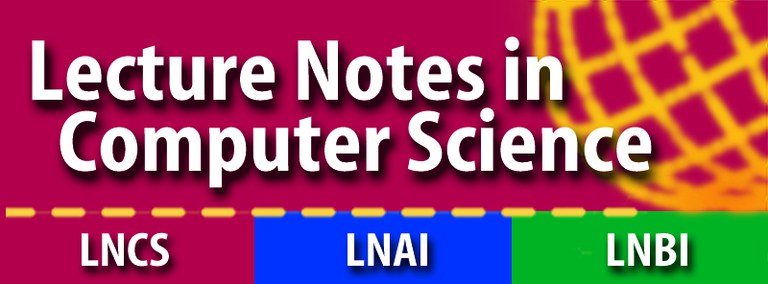
Springer is able to manage ORCID ID related to the authors and the Proceedings Volumes Editors! Please add the ORCID ID related to each author of your submitted paper!!!
Warning: Fake ICCSA Conference by WASET
We have noticed the existence of organisations such as WASET that run fake “conferences” in order to make profit with the registration fees, often spoofing the names of real conferences. WASET claims to be organising a conference called ICCSA next year, which is a FAKE ICCSA conference.
The Real ICCSA conference has been organised by the ICCSA Society since 2003. We do not have any involvement with WASET. Please spread this news to your contacts and communities so that nobody mistakenly participates to such fake conferences.
WASET is predator publisher. Go to this Wiki Link: https://en.wikipedia.org/wiki/World_Academy_of_Science,_Engineering_and_Technology
The conference is organized in cooperation with:
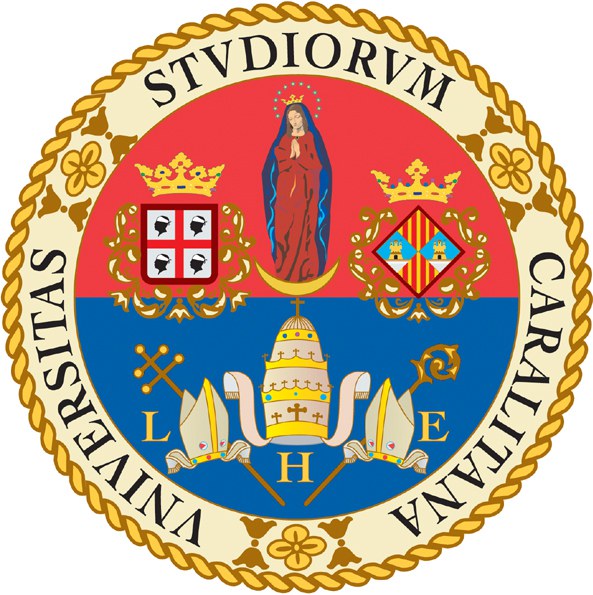 University of Cagliari, Italy
University of Cagliari, Italy
This conference is proudly sponsored by:
 Springer International Publishing
Springer International Publishing
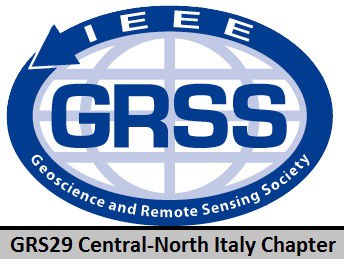 Centre-North Italy Chapter IEEE GRSS
Centre-North Italy Chapter IEEE GRSS
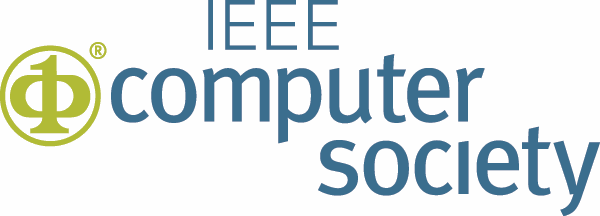 Italy Section of the Computer Society
Italy Section of the Computer Society
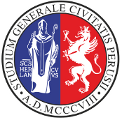 University of Perugia, Italy
University of Perugia, Italy
 University of Basilicata, Italy
University of Basilicata, Italy
 Monash University, Australia
Monash University, Australia
 Kyushu Sangyo University, Japan
Kyushu Sangyo University, Japan
 University of Minho, Portugal
University of Minho, Portugal
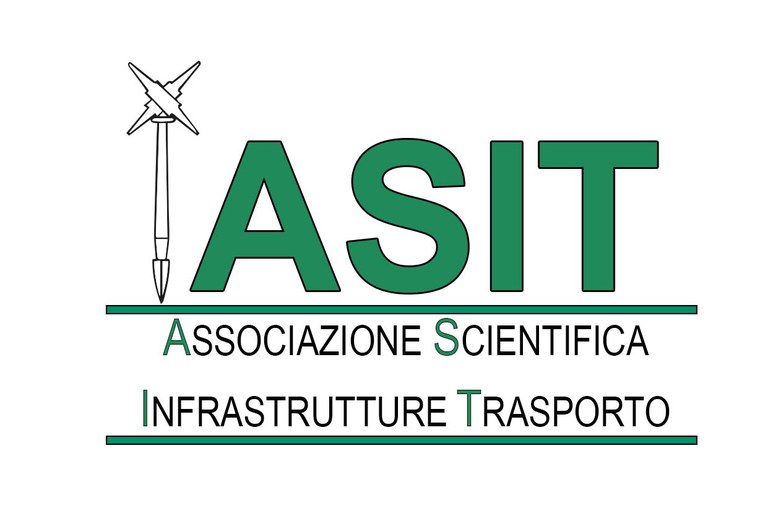 Associazione Scientifica Infrastrutture Trasporto (Scientific Association Transport Infrastructures) , Italy
Associazione Scientifica Infrastrutture Trasporto (Scientific Association Transport Infrastructures) , Italy
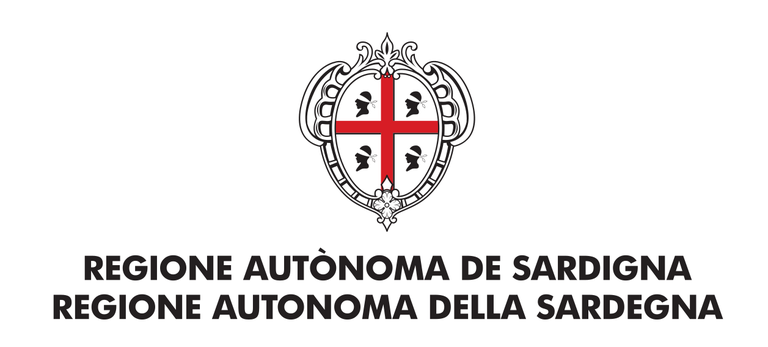
Regione Autonoma della Sardegna
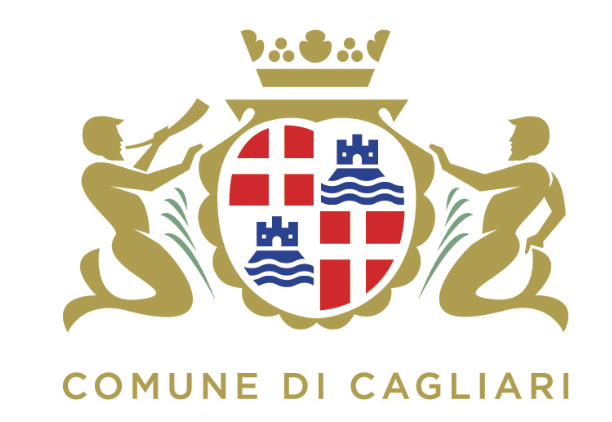
Committees
Honorary General Chairs
Antonio Laganà, Master-UP srl, Italy
Norio Shiratori, Chuo University, Japan
Kenneth C. J. Tan, Sardinia Systems, UK
Corrado Zoppi, University of Cagliari, Italy
General Chairs
Osvaldo Gervasi, University of Perugia, Italy
Ivan Blecic, University of Cagliari, Italy
David Taniar, Monash University, Australia
Program Committee Chairs
Beniamino Murgante, University of Basilicata, Italy
Bernady O. Apduhan, Kyushu Sangyo University, Japan
Chiara Garau, University of Cagliari, Italy
Ana Maria A.C. Rocha, University of Minho, Portugal
International Advisory Committee
Jemal Abawajy, Deakin University, Australia
Dharma P. Agrawal, University of Cincinnati, USA
Rajkumar Buyya, Melbourne University, Australia
Claudia Bauzer Medeiros, University of Campinas, Brazil
Manfred M. Fisher, Vienna University of Economics and Business, Austria
Marina L. Gavrilova, University of Calgary, Canada
Yee Leung, Chinese University of Hong Kong, China
International Liaison Chairs
Elise De Donker, Western Michigan University, USA
Maria Irene Falcão, University of Minho, Portugal
Robert C. H. Hsu, Chung Hua University,Taiwan
Tai-Hoon Kim, Beijing Jaotong University,,China
Vladimir Korkhov, Saint Petersburg University, Russia
Sanjay Misra, Covenant University, Nigeria
Takashi Naka, Kyushu Sangyo University, Japan
Rafael D.C. Santos, National Institute for Space Research, Brazil
Maribel Yasmina Santos, University of Minho, Portugal
Elena Stankova, Saint Petersburg University, Russia
Workshop and Session Organizing Chairs
Beniamino Murgante, University of Basilicata, Italy
Sanjay Misra, Covenant University, Nigeria
Jorge Gustavo Rocha, University of Minho, Portugal
Award Chair
Wenny Rahayu, La Trobe University, Australia
Publicity Committee
Elmer Dadios, De La Salle University, Philippines
Natalia Kulabukhova, Saint Petersburg University, Russia
Daisuke Takahashi, Tsukuba University, Japan
Shangwang Wang, Beijing University of Posts and Telecommunications, China
Local Organizing Committee Chairs
Ivan Blecic, University of Cagliari, Italy
Chiara Garau, University of Cagliari, Italy
Ginevra Balletto, University of Cagliari, Italy
Giuseppe Borruso, University of Trieste, Italy
Michele Campagna, University of Cagliari, Italy
Mauro Coni, University of Cagliari, Italy
Anna Maria Colavitti, University of Cagliari, Italy
Giulia Desogus, University of Cagliari, Italy
Sabrina Lai, University of Cagliari, Italy
Francesca Maltinti, University of Cagliari, Italy
Pasquale Mistretta, University of Cagliari, Italy
Augusto Montisci, University of Cagliari, Italy
Francesco Pinna, University of Cagliari, Italy
Davide Spano, University of Cagliari
Roberto Tonelli, University of Cagliari, Italy
Giuseppe A. Trunfio, University of Sassari
Corrado Zoppi, University of Cagliari, Italy
Technology Chairs
Damiano Perri, University of Florence, Italy
Marco Simonetti, University of Florence, Italy
Program Committee
Vera Afreixo, University of Aveiro, Portugal
Filipe Alvelos, University of Minho, Portugal
Hartmut Asche, University of Potsdam, Germany
Ginevra Balletto, University of Cagliari, Italy
Michela Bertolotto, University College Dublin, Ireland
Sandro Bimonte, CEMAGREF, TSCF, France
Rod Blais, University of Calgary, Canada
Ivan Blečić, University of Sassari, Italy
Giuseppe Borruso, University of Trieste, Italy
Ana Cristina Braga, University of Minho, Portugal
Massimo Cafaro, University of Salento, Italy
Yves Caniou, Lyon University, France
José A. Cardoso e Cunha, Universidade Nova de Lisboa, Portugal
Rui Cardoso, University of Beira Interior, Portugal
Leocadio G. Casado , University of Almeria, Spain
Carlo Cattani, University of Salerno, Italy
Mete Celik, Erciyes University, Turkey
Hyunseung Choo, Sungkyunkwan University, Korea
Min Young Chung, Sungkyunkwan University, Korea
Florbela Maria da Cruz Domingues Correia, Polytechnic Institute of Viana do Castelo, Portugal
Gilberto Corso Pereira, Federal University of Bahia, Brazil
Alessandro Costantini, INFN, Italy
Carla Dal Sasso Freitas, Universidade Federal do Rio Grande do Sul,
Brazil
Pradesh Debba, The Council for Scientific and Industrial Research (CSIR), South Africa
Hendrik Decker, Instituto Tecnológico de Informática, Spain
Frank Devai, London South Bank University, UK
Rodolphe Devillers, Memorial University of Newfoundland, Canada
Joana Matos Dias, University of Coimbra, Portugal
Paolino Di Felice University of L'Aquila, Italy
Prabu Dorairaj, NetApp, India/USA
M. Irene Falcao, University of Minho, Portugal
Cherry Liu Fang, U.S. DOE Ames Laboratory, USA
Florbela P. Fernandes, Polytechnic Institute of Bragança, Portugal
Jose-Jesus Fernandez, National Centre for Biotechnology, CSIS, Spain
Paula Odete Fernandes, Polytechnic Institute of Bragança, Portugal
Adelaide de Fátima Baptista Valente Freitas, University of Aveiro,
Portugal
Manuel Carlos Figueiredo, University of Minho, Portugal
Maria Celia Furtado Rocha, PRODEB–PósCultura/UFBA, Brazil
Chiara Garau, University of Cagliari, Italy
Paulino Jose Garcia Nieto, University of Oviedo, Spain
Jerome Gensel, LSR-IMAG, France
Maria Giaoutzi, National Technical University, Athens, Greece
Arminda Manuela Andrade Pereira Gonçalves, University of Minho,
Portugal
Andrzej M. Goscinski, Deakin University, Australia
Sevin Gümgüm, Izmir University of Economics, Turkey
Alex Hagen-Zanker, University of Cambridge, UK
Shanmugasundaram Hariharan, B.S. Abdur Rahman University, India
Eligius M.T. Hendrix, University of Malaga/Wageningen University, Spain/Netherlands
Hisamoto Hiyoshi, Gunma University, Japan
Mustafa Inceoglu, EGE University, Turkey
Peter Jimack, University of Leeds, UK
Qun Jin, Waseda University, Japan
Farid Karimipour, Vienna University of Technology, Austria
Baris Kazar, Oracle Corp., USA
Maulana Adhinugraha Kiki, Telkom University, Indonesia
DongSeong Kim, University of Canterbury, New Zealand
Taihoon Kim, Hannam University, Korea
Ivana Kolingerova, University of West Bohemia, Czech Republic
Nataliia Kulabukhova, St.~Petersburg University, Russia
Vladimir Korkhov, St.~Petersburg University, Russia
Rosa Lasaponara, National Research Council, Italy
Maurizio Lazzari, National Research Council, Italy
Cheng Siong Lee, Monash University, Australia
Sangyoun Lee, Yonsei University, Korea
Jongchan Lee, Kunsan National University, Korea
Chendong Li, University of Connecticut, USA
Gang Li, Deakin University, Australia
Fang Liu, AMES Laboratories, USA
Xin Liu, University of Calgary, Canada
Andrea Lombardi, University of Perugia, Italy
Savino Longo, University of Bari, Italy
Tinghuai Ma, NanJing University of Information Science & Technology, China
Ernesto Marcheggiani, Katholieke Universiteit Leuven, Belgium
Antonino Marvuglia, Research Centre Henri Tudor, Luxembourg
Nicola Masini National Research Council, Italy
Ilaria Matteucci, National Research Council, Italy
Eric Medvet, University of Trieste, Italy
Nirvana Meratnia, University of Twente, The Netherlands
Noelia Faginas Lago, University uf Perugia, Italy
Giuseppe Modica, University of Reggio Calabria, Italy
Josè Luis Montaña, University of Cantabria, Spain
Maria Filipa Mourão, IP from Viana do Castelo, Portugal
Louiza de Macedo Mourelle, State University of Rio de Janeiro, Brazil
Nadia Nedjah, State University of Rio de Janeiro, Brazil
Laszlo Neumann, University of Girona, Spain
Kok-Leong Ong, Daekin University, Australia
Belen Palop, Universidad de Valladolid, Spain
Marcin Paprzycki, Polish Academy of Sciences, Poland
Eric Pardede, La Trobe University, Australia
Kwangjin Park, Wonkwang University, Korea
Ana Isabel Pereira, Polytechnic Institute of Bragança, Portugal
Massimiliano Petri, University of Pisa, Italy
Maurizio Pollino, Italian National Agency for New Technologies, Energy and Sustainable Economic Development, Italy
Alenka Poplin, University of Hamburg, Germany
Vidyasagar Potdar, Curtin University of Technology, Australia
David C. Prosperi, Florida Atlantic University, USA
Wenny Rahayu, La Trobe University, Australia
Jerzy Respondek, Silesian University of Technology Poland
Humberto Rocha, INESC-Coimbra, Portugal
Jon Rokne, University of Calgary, Canada
Octavio Roncero, CSIC, Spain
Maytham Safar, Kuwait University, Kuwait
Francesco Santini, University of Perugia, Italy
Chiara Saracino, A.O. Ospedale Niguarda Ca' Granda - Milano, Italy
Haiduke Sarafian, The Pennsylvania State University, USA
Marco Paulo Seabra dos Reis, University of Coimbra, Portugal
Jie Shen, University of Michigan, USA
Qi Shi, Liverpool John Moores University, UK
Dale Shires, U.S. Army Research Laboratory, USA
Inês Soares, University of Coimbra, Portugal
Elena Stankova, Saint Petersburg University, Russia
Takuo Suganuma, Tohoku University, Japan
Eufemia Tarantino, Polytechnic of Bari, Italy
Sergio Tasso, University of Perugia, Italy
Ana Paula Teixeira, University of Trás-os-Montes and Alto Douro, Portugal
Senhorinha Teixeira, University of Minho, Portugal
M. Filomena Teodoro, Portuguese Naval Academy and University of Lisbon, Portugal
Parimala Thulasiraman, University of Manitoba, Canada
Carmelo Torre, Polytechnic of Bari, Italy
Javier Martinez Torres, Centro Universitario de la Defensa Zaragoza, Spain
Giuseppe A. Trunfio, University of Sassari, Italy
Pablo Vanegas, University of Cuenca, Equador
Marco Vizzari, University of Perugia, Italy
Varun Vohra, Merck Inc., USA
Koichi Wada, University of Tsukuba, Japan
Krzysztof Walkowiak, Wroclaw University of Technology, Poland
Zequn Wang, Intelligent Automation Inc, USA
Robert Weibel, University of Zurich, Switzerland
Frank Westad, Norwegian University of Science and Technology, Norway
Roland Wismüller, Universität Siegen, Germany
Mudasser Wyne, SOET National University, USA
Chung-Huang Yang, National Kaohsiung Normal University, Taiwan
Xin-She Yang, National Physical Laboratory, UK
Salim Zabir, France Telecom Japan Co., Japan
Haifeng Zhao, University of California, Davis, USA
Fabiana Zollo, University of Venice "Cà Foscari", Italy
Albert Y. Zomaya, University of Sydney, Australia
Themes
1. Track: Computational Methods, Algorithms and Scientific Applications
2. Track: High Performance Computing and Networks
3. Track: Geometric Modeling, Graphics and Visualization
Computer Graphics
4. Track: Advanced and Emerging Applications
5. Track: Information Systems and Technologies
Risk Analysis
Machine Learning
Blockchain
6 Track: Urban and Regional Planning
Urban and regional growth
Sustainable urban and regional development
Socio-ecological systems
Open Data- Big Data
Cultural Heritage
Smart and Sustainable Cities
Mobility and Intelligent Transport Systems
Geographical Information Systems
Decision Support Systems
Complexity assessment and mapping
Logistics
Call for Papers
Cagliari, Italy
July 1-4, 2020
ICCSA 2020 is the next event in the series of highly successful International Conferences on Computational Science and Its Applications, previously held in Saint Petersburg - Russia (2019), Melbourne - Australia (2018), Trieste - Italy (2017), Beijing- China (2016), Banff - Canada (2015), Guimaraes - Portugal (2014), Ho Chi Minh City - Vietnam (2013), Salvador da Bahia - Brazil (2012), Santander - Spain (2011), Fukuoka - Japan (2020), Suwon - Korea (2009), Perugia - Italy (2008), Kuala Lumpur - Malaysia (2007), Glasgow - United Kingdom (2006), Singapore - Singapore(2005), Assisi - Italy (2004), Montreal - Canada (2003), and, as ICCS, in Amsterdam - The Netherlands (2002) and San Francisco - USA (2001).
Computational Science is a main pillar of most of the present research, industrial and commercial activities and plays a unique role in exploiting ICT innovative technologies.
The ICCSA Conference offers a real opportunity to bring together scientists of different disciplines, discuss new issues, tackle complex problems and find advanced solutions breeding new trends in Computational Science.
Submitted papers will be subject to stringent peer review by at least three experts and carefully evaluated based on originality, significance, technical soundness, and clarity of exposition. Accepted papers will appear in the Conference proceedings to be published by Springer-Verlag in Lecture Notes for Computer Science and Conference Publishing System (CPS). The authors of a selected number of top quality papers will be requested to extend their papers for further review and publication as special issues in highly recognized international journals.
ICCSA 2020 accepts paper submission in the following categories: General Tracks papers and Workshop papers. The details for each paper submission category can be found at the URL http://2020.iccsa.org/Instructions-for-authors and the list of Workshops at the URL: http://2020.iccsa.org/workshops.
Conference Themes
The ICCSA 2020 Conference themes, grouped in five tracks, are the following (but are not limited to):
1. Track: Computational Methods, Algorithms and Scientific Application
Computational Biology
Computational Combustion
Computational Chemistry
Computational Fluid Dynamics
Computational Physics
Computational Geometry
Computational Mathematics
Computational Mechanics
Computational Electro-magnetics
Numerical Methods and Algorithms
2. Track: High Performance Computing and Networks Parallel and Distributed Computing
Cluster Computing
Supercomputing
Cloud Computing
Autonomic Computing
P2P Computing
Mobile Computing
Grid and Semantic Grid Computing
Workflow Design and Practice
Computer and Network Architecture
3. Track: Geometric Modelling, Graphics and Visualization
Scientific Visualization
Computer Graphics
Geometric Modelling
Pattern Recognition
Image Processing
CAD/CAM
Web3D, Virtual and Augmented Reality
4. Track: Advanced and Emerging Applications
Biochemistry
Bioinformatics
Astrophysics
Biometric Modelling
Environmental, Climate and Weather Modelling
Geology and Geophysics
Nuclear Physics
Financial and Economical Modelling
Computational Journalism
Geographical Information Systems
5. Track: Information Systems and Technologies
Information Retrieval
Scientific Databases
Security Engineering
Risk Analysis
Reliability Engineering
Software Engineering
Data Mining
Artificial Intelligence
Machine Learning
Learning Technologies
Web Based Computing
Web 2.0
Blockchain
6. Track: Urban and Regional Planning
Urban and regional grouth
Sustainable urban and regional development
Socio-ecological systems
Open Data, Big Data
Cultural Heritage
Smart and Sustainable Cities
Mobility and Intelligent Transport Systems
Decision Support Systems
Complexity assessment and mapping
Logistics
Paper Submission
To submit a paper, please connect to the Submission site from the link available at the ICCSA 2020 web site: https://cyb20.iccsa.org.
Only papers submitted through the electronic system and strictly adhering to the relevant format will be considered for reviewing and publication.
The submission may fall into the following five categories: General Tracks Papers, Workshop Papers, Short Papers, and PHD Showcase Papers.
GENERAL TRACKS PAPERS
The submitted paper must be camera-ready, between 10 and 16 pages long and formatted according to the LNCS rules. Please consult the URL http://2020.iccsa.org/Instructions-for-authors for formatting information and templates.
WORKSHOPS PAPERS
The submitted paper must be between 10 to 16 pages long for LNCS publication, or 7 to 11 pages for CPS publication (in such case as post-conference proceedings), and should be formatted according to the LNCS or CPS rules, respectively.
Please consult the URL http://2020.iccsa.org/Instructions-for-authors for formatting information and templates.
SHORT PAPERS
Reporting preliminary results of ongoing research. The submitted paper must be between 7 and 9 pages long formatted according to LNCS rules. The Short Papers will be presented during the conference and will be published by LNCS.
PHD SHOWCASE PAPERS
Reporting ongoing research already achieving significant results and primarily carried out by Ph.D. students and junior researchers. The submitted paper must be between 6 to 8 pages long formatted according to CPS rules. The PHD Showcase Papers will be presented during the conference and will be published by CPS as post-conference proceedings.
Each paper must deal with original and unpublished work, not submitted for publication elsewhere (copyright problems fall entirely under responsibility of the authors). Each paper will be reviewed by at least three experts in the relevant field (acceptance rate was 28% in 2005, 26% in 2006 and 28% in 2007, 29% in 2008, 30% in 2009, 29% in 2020, 2011, 2012, and 30% in 2013, 2014, 2015, 2016, 2017, 2018 and 2019) ensuring the publication of only top quality contributions.
When a paper is accepted at least one of the authors has to register to the conference and deliver the related talk. Failure to do so shall lead to rejection of the application to attend next year conference and the exclusion of the paper for the current year proceedings.
Workshops
Refer to the web page http://2020.iccsa.org/workshops for the updated list of Workshops
Please pay attention, when submitting your contribution to one of the above listed Workshops, to select the right entry in the listbox shown in the Abstract, Paper and Camera Ready submission forms.
An author is enabled to change the workshop associated to a submitted paper until the submission deadline, by updating the paper into the system and selecting the proper Workshop from the list.
Important Dates
April 26, 2020: Deadline for paper submission to the General Tracks (Workshops may select a different deadline)
June 7, 2020: Notification of Acceptance.
June 23, 2020: Early-bird Registration ends.
June 23, 2020: Submission deadline for the final version of the Papers
July 1-4, 2020: ICCSA 2020 Conference
Proceedings
The proceedings of the Conference will be published after the Conference because the Corona virus outbreak, both by Springer-Verlag (Lecture Notes in Computer Science series) and, as post-conference proceedings, by Conference Publishing Services (CPS).
In particular:
1. The selected top quality Theme Papers and Session Papers having adopted LNCS, will appear in the Springer-Verlag Lecture Notes in Computer Science (LNCS) series (paper length: 10-16 pages).
2. The selected top quality Session Papers having adopted CPS, will appear in the CPS post-conference Proceedings.
3. Short papers will appear in the Springer-Verlag Lecture Notes in Computer Science ( LNCS) series (paper length: 7-9 pages)
4. PHD Showcase Papers will be published in the CPS post-conference Proceedings.
For a selected number of top quality papers, after the Conference, the authors will be requested to extend the paper in order to be published as special issues in appropriate international journals.
Conference policy
By submitting the paper to ICCSA conference, all authors agree to abide by all ICCSA conference paper submission, publication and presentation policies. Namely, authors confirm that the work is original, has not appeared in literature in any form in the past and will not be submitted to any other venue concurrently with ICCSA submission or until it appears in ICCSA proceedings (in the case of acceptance). Furthermore, upon paper acceptance, authors agree to transfer copyright on the accepted paper to ICCSA, and one of the authors will register the paper and present the paper at the event.No paper withdrawals can be accepted after Conference pre-registration date or within three months of the actual event, whichever date comes first. Paper withdrawal request can be only accepted in writing through email, letter or fax to conference organizers.The conference has no responsibility for any intentional or accidental misuse, misinterpretation, or failure to follow above rules and conditions and holds no legal, civil or other responsibility for opinions, content or utilization of any methods/algorithms expressed in the Conference Proceedings.Contact Information
Ivan Blecic
Dipartimento di Ingegneria Civile e Ambientale e Architettura, University of Cagliari
Via Marengo, 2
06913 Cagliari
Italy
Email: ivanblecic <at>unica <dot> it
Osvaldo Gervasi
Department of Mathematics and Computer Science, University of Perugia
Via Vanvitelli, 1
06123 Perugia
Italy
Phone: +39-075-5855048
Fax: +39-075-5855024
Email: osvaldo <dot> gervasi <at> unipg <dot> it
URL: http://ogervasi.unipg.it
Call for Workshop Proposals
Cagliari is the largest city of Sardinia Island. In its neighborhood are located several extraordinary beautiful beaches!
We encourage and invite interested parties to submit a proposal for organizing a Workshop
Workshop proposals will be collected and evaluated as they are received until October 27, 2019 and notification of acceptance / rejection will be sent before November 1, 2019
The Workshop proposals should be submitted from the researcher's home page on the ICCSA 2020 Electronic Submission System.
The form to be filled will require the following information:
1) Title of the Workshop
Please select a simple name, close to the aim of the workshop. Do not include here the acronym.
2) The Acronym of the Workshop including the year, 2020
3) The selected publisher (LNCS) of the proposed workshop. If you are interested publishing the papers of your Workshop on IEEE-CPS Xplore, please specify IEEE.
4) Description of the Workshop, including the detailed list (name, affiliation, country) of the Program Committee members
5) Description of the topics (themes) of the workshop
2) Name, the affiliation, mailing address and e-mail address of the Workshop organizer(s).
3) Previous experience of the organizer(s) in organizing Workshops (if any).
4) Name, the affiliation, and e-mail addresses of at least three colleagues of the organizer(s) who can assess the ability to organize a Workshop
7) A short description on how the workshop will be advertised.
The organization of successful workshops in previous editions of ICCSA (at least 5 papers accepted in the Proceedings, minimum no-show up, several discussions and questions during/after presentations), including the participation of the Workshop Organizers to the Conference, will be given priority ranking for acceptance.
The information provided by the workshop organizer(s) to the Conference Chairs shall remain strictly confidential.
The Workshop Organizers are responsible for all the organizational aspects including soliciting submissions and providing the details of an adequate number of reviewers for the Workshop papers. Workshop Organizers are also fully responsible for ensuring that only high quality papers are accepted for publication in the Proceedings and for verifying the correctness of the layout adopted by the authors (which depends from the editor selected for the workshop). They are also responsible for choosing the actual reviewers (at least three) for each paper and for monitoring the reviewing process on the reviewing system, in collaboration with the Conference Program Chairs.
Workshop Organizers (or their Deputies) are expected to attend ICCSA 2020, set the order of presentations and chair their related workshop(s).
Due to their active role, Workshop Organizers will receive some incentives, depending on the number and quality of accepted and registered papers.
Paper submission
For detailed info please visit the URL: http://2020.iccsa.org/call-for-papers
GENERAL TRACKS PAPERS:
The submitted paper must be between 10 to 16 pages long and formatted according to the LNCS rules.
WORKSHOP PAPERS:
The submitted paper must be between 10 to 16 pages long and formatted according to the LNCS rules.
SHORT PAPERS:
The submitted paper must be between 7 to 9 pages long and formatted according to the LNCS rules.
Proceedings
The proceedings will be published as a special series of volumes of the Lecture Notes on Computer Science (LNCS) edited by Springer.
All accepted papers will be included in the Springer Lecture Notes in Computer Science (LNCS) series and indexed by Scopus, EI Engineering Index, Thomson Reuters Conference Proceedings Citation Index (included in ISI Web of Science), and several other indexing services. The papers will contain linked references, XML versions and citable DOI numbers.
Papers published by IEEE-CPS will be published as Post Conference Proceedings and indexed by Scopus, EI Engineering Index, Thomson Reuters Conference Proceedings Citation Index (included in ISI Web of Science), and several other indexing services.
Instructions for Authors
Prospective authors are invited to submit papers, either to the General Tracks, to the Workshops/Sessions or Short Papers. The papers are categorized as follows:
- General Tracks/Theme Papers: 10 to 16 pages formatted according to LNCS rules. After the reviewing process, the accepted papers will be published in the Springer-Verlag Lecture Notes in Computer Science (LNCS) volumes. General Tracks papers and papers belonging to Workshops which required LNCS ad editor will be included in LNCS proceedings.
- Workshop/Session Papers: 6 to 11 pages formatted according to CPS rules. After the reviewing process, the accepted papers of the Workshops which required the Conference Publishing Services (CPS) as editor will be included in the CPS proceedings.
- PHD Showcase Papers: 5 to 8 pages formatted according to CPS rules. After the reviewing process, the accepted PHD Showcase papers, reporting ongoing research already achieving significant results and primarily carried out by Ph.D. students and junior researchers, will be published by the Conference Publishing Services (CPS).
- Short Papers: 7 to 9 pages formatted according to LNCS rules. After the reviewing process, the accepted Short papers, reporting preliminary results of ongoing research, will be published on Lecture Notes in Computer Science (LNCS) volumes.
All papers submitted to the General Tracks of ICCSA 2020 will be published in LNCS.
Each paper must be original and unpublished work, not submitted for publication elsewhere (copyright problems fall entirely under responsibility of the authors).
Each paper will be reviewed by at least three experts in the relevant field ensuring the publication of only top quality contributions.
Submission of a paper should be regarded as an undertaking that, should the paper be accepted, at least one of the authors should register and present orally the paper in the conference. Failure to do so shall lead to rejection of the application to attend next year conference and the exclusion of the paper for the current year proceedings.
Paper Submission
The submission of contributions to ICCSA 2020 follows the following steps:
Authentication
The author has to login into the Electronic Submission System, available at the URL: https://cyb20.iccsa.org. If the author is using the system for the first time, she/he has to Register. If the author had already used the system in previous editions of the ICCSA Conference, she/he has to register to the system. since this year we decided to refresh the author's information. At the end of the authentication phase the author's home page will be shown, with a summary of the abstracts and papers submitted by the author.
Two step submission
Each submission to ICCSA 2020 starts submitting an Abstract (1st phase). This phase is facilitated because the author's information are collected during the Registration phase to the Electronic Submission Site. If the author intends to submit the paper to a Workshop (see http://2020.iccsa.org/workshops) she/he has to pay attention to select the proper Workshop from the list shown in the Abstract submission form. It is recommended to submit the Abstract early in advance, to facilitate the Conference organization.
When preparing the Full Paper the author has to carefully check the adopted layout, i.e.:
- LNCS format for General Tracks Papers and for Workshops which selected the Lecture Notes in Computer Science (LNCS) Proceedings.
- Conference Publishing Services (CPS) format for the Workshops which selected CPS (XPlore) Proceedings and for PhD Showcase Papers.
Then the author has to submit the Full Paper (phase 2) in PDF format. The paper details are kept from the Abstract, so this process is quite easy and fast.
The submitted Paper will be submitted to the reviewing process.
The author is allowed to update the version of her/his Paper before the submission deadline.
Camera Ready submission
After receiving the notification of acceptance, the authors of accepted Papers will be asked to modify their Paper according to the Reviewers recommendations and to submit the Camera Ready version of their paper and all source files necessary to produce the final version by the Editor and sign the Copyright Transfer Form (phase 3).
The procedure will depend on the type of Editor (LNCS or CPS): :
- For papers to be published in LNCS (General Tracks Papers and Workshop Papers (wich selected LNCS) and Short Papers: the authors have to upload in the Electronic Submission System the Camera Ready version of the accepted paper, the related source files and the signed Copyright Transfer form.
- For papers to be published by Conference Publishing Services (CPS) (CPS Full Papers and PHD Showcase Papers): the authors have to upload the source files and fill the Copyright Transfer Form online on the Author's Kit Web page, which URL was also provided in the Acceptance Notification letter or published on http://2020.iccsa.org.
Conference Publishing Services (CPS)
Your final papers MUST be formatted to the Proceedings Manuscript Formatting Guidelines (see link to "formatting instructions" below). It is highly recommended that you proofread and check the layout of your paper BEFORE submitting it to PDF eXpress™.
LaTex Formatting Macros
Submitted papers not conforming to the above layouts will be excluded from the Review phase.
Conference Registration
Since the publication of the Papers in the Proceedings is subject to the Conference Registration and payment of the fee, all authors are kindly request to Register to the Conference before the deadline, in order to facilitate a smooth Proceedings preparation process.
To register and pay the related fee, click on the link on top of the Home Page on https://cyb20.iccsa.org.
We recommend to pay the fee by Credit Card, which is the fastest and more reliable payment channel.
Registration Info
The Registration to the Conference is mandatory to be enabled to attend the Virtual Sessions and to have the accepted Paper included in the published Conference Proceedings. To this end it is mandatory to complete the registration process by the firm deadline of June 24th, 2020. Please follow the instructions herein described:
- For registering to the conference, you must follow the link shown in your home page of the Electronic Submission System, the same used for submitting the paper(s) (if you haven't used it before, please register to the portal following the indication shown in the login page and after having logged in, proceed with the registration to the ICCSA 2020 Conference).
- If you are an author of paper(s), you are kindly requested to pay attention to specify the paper(s) ID and title (i.e.: 100 - My paper title). as shown in your web page in the Electronic Submission System https://cyb20.iccsa.org.
Each Registrant is allowed to specify up to 3 paper(s), the first is included in the registration fee, the additional paper(s) are charged 150€ each. After having completed the registration procedure, you must proceed with the Payment according to the chosen method (Credit Card or Wire Transfer). At the bottom of the summary page received after having submitted the registration info clicking on the button Submit data for registering to ICCSA 2020 you will see a button for proceeding with the Credit Card payment or the instructions for making the Bank Wire Transfer payment.
- For participants who want to pay by Bank Wire Transfer, please send your payment As Soon As Possible as it takes some time to process the payment. Your payment should be received by us on or before June 24th, 2020. Bank Wire Transfer and other related fees have to be paid by the registrant (please verify carefully during the Wire Transfer payment that all costs are charged to you). Failure to pay the required amount on this date will result in the exclusion of the paper(s) from the Conference Proceedings.
- The Credit Card payment is available and is the preferred method *no errors are possible identifying the registrant*). After you registered specifying as preferred method the payment via Credit Card, you'll be able to see the following images and the button at the bottom of the summary page related to the registration:

Click on the button Proceed with the payment through SOAR Secure Server and you'll be directed to the Gateway for the Credit Card transaction.
Conference Fees
ICCSA 2020 conference fees cover:
- attendance of Conference Delegates to the Sessions of the Virtual Conference
- Free access to the Proceeding Volumes Set
ICCSA 2020 Virtual Conference fee is 150€.
Each additional paper will be charged 150€.
Notes (read carefully):
1) IEEE Members will get a discount of 10€ if they will input the IEEE Membership number in the proper input field of the registration form.
2) For each Accepted Paper, one author must register, pay the registration fee, and virtually present the paper in the conference session where the paper is scheduled. A detailed Program with the associated links for connecting to the virtual session rooms will be published before the virtual event.
2) Once the registration payment is done, NO REFUND is available.
By Credit Card (on-Line)
From your personal page on the Electronic Submission System, https://cyb20.iccsa.org, press the button which invites you to register to the Conference. Visa and Master Card credit cards are allowed through the PayWay Secure Service.
By Wire Transfer
NAME OF THE BANK: Crediumbria Banca di Credito Cooperativo
BANK ADDRESS: Via Stradone, Località Moiano, 06062 Città della Pieve - PG (Italy)
ACCOUNT HOLDER: The International Conference On Computational Science and Its Applications
address: Via Mazzini 89/A, 85100 Potenza (PZ), Italy
Fiscal ID: IT 01814970768
SWIFT Code: ICRAITRRTV0
IBAN: IT28F0707538380000000008028
Please specify in the MEMO LINE the following: NAME SURNAME ICCSA 2020 Registration
Replace NAME and SURNAME with your full name. In case administrative people will issue the payment, make clear they have to conform to the above syntax. This is crucial in order to have your payment properly traced, since some banks cut the string to a small number of characters!!!!
IMPORTANT REMINDERS:
1) The bank wire transfer and other related fees have to be paid by the participant.
2) After sending your registration payment by bank wire transfer, scan the bank receipt and attach the PDF file in an email to:
Email: registration2020@iccsa.org
Subject: Payment NAME SURNAME(Note: Fill in NAME SURNAME with your full name, so that we will be able to monitor your payment with your registration entry).
Note: To facilitate the acknowledgement of bank wire transfer payment, be sure to provide your complete name, details of amount paid, and other applicable information. Insufficient information causes delay and problems.
ORCID
Springer is able to include ORCID ID for authors and editors of the proceedings. See this announcement https://goo.gl/nAX4y8 and the guidelines https://goo.gl/oiMNAm (editor guidelines, section 4.7) for more information.
Authors are kindly requested to provide ORCID iDs in their papers, as an additional field of the authors' information.
The correct identification of the authors through their ORCID ID is crucial in order to have a correct mapping of publications and citations.
For more information see: https://goo.gl/hbsa4D.
Publishing Open Access in LNCS
It is possible to publish individual papers as Open Access in LNCS !
Interested authors are kindly requested to contact us at the email address registration2020@iccsa.org
Important Dates
October 28, 2019: Deadline for Workshop proposals submission
November 5, 2019: Start of Abstract and Paper submission
April 26, 2020: Deadline for abstract and paper submission to the General Tracks. Workshops may have their own deadline
June 7, 2020: Notification of Acceptance
June 23, 2020: Submission deadline for the final version of the Proceeding Paper (hard deadline)
June 24, 2020: Registration ends (hard deadline)
July 1-4, 2020: ICCSA 2020 Conference

